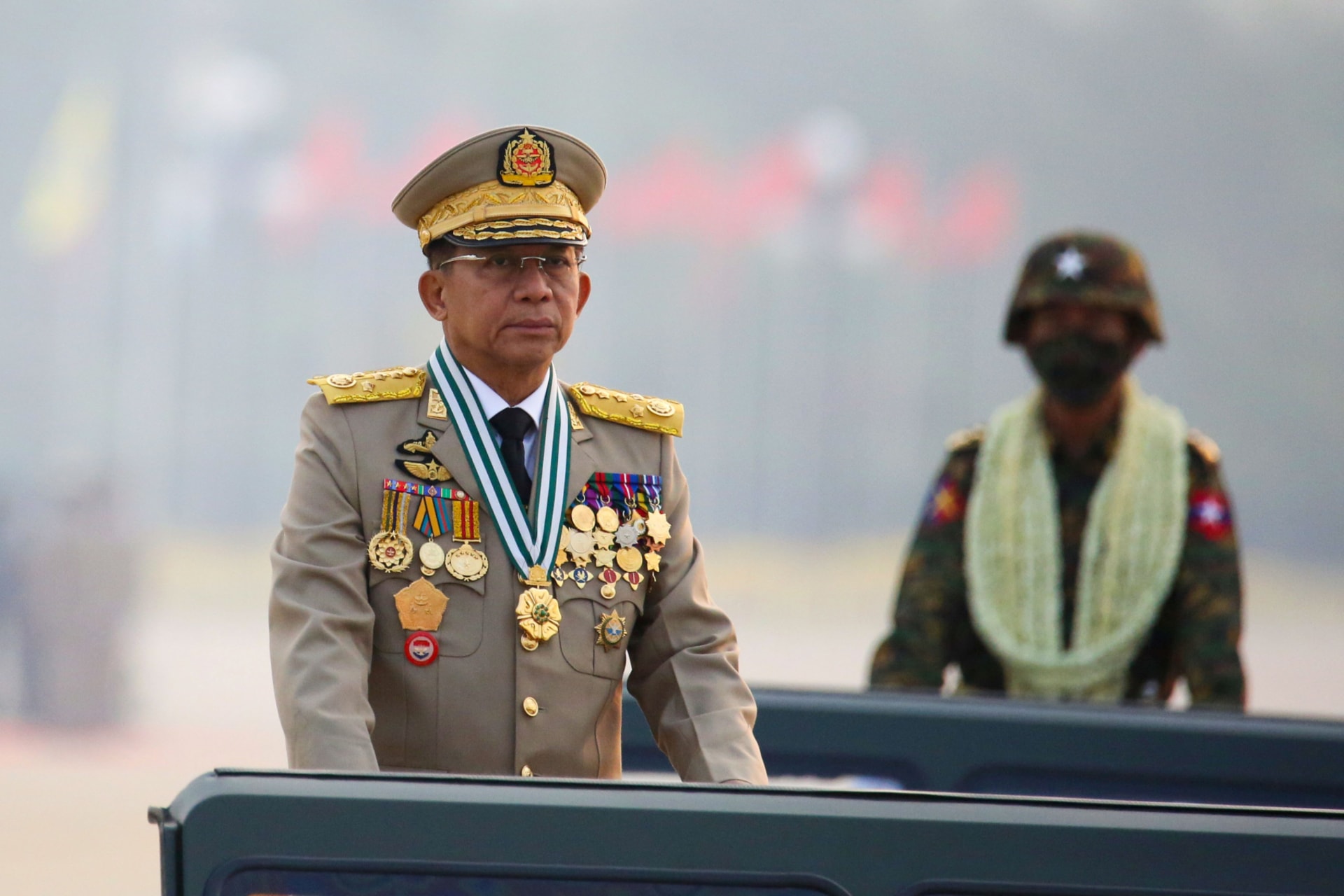Myanmar Junta Detains U.S. Journalist: The Junta Digs In
A recent arrest of a U.S. journalist in Myanmar shows the junta is digging in.

By experts and staff
- Published
Experts
![]() By Joshua KurlantzickSenior Fellow for Southeast Asia and South Asia
By Joshua KurlantzickSenior Fellow for Southeast Asia and South Asia
In case the Myanmar junta’s brutal onslaught against protestors, civil society leaders, opposition politicians, poets, and virtually everyone else who opposed their coup did not make it clear, the armed forces intend to stay in power, following the February 2021 coup, for a long time. In the past day, they detained Danny Fenster, a U.S. citizen and the managing editor of Frontier Myanmar, before he departed for Kuala Lumpur. Frontier Myanmar, an independent news outlet that has delivered groundbreaking coverage in recent months, has stated that Fenster was not allowed to board his 10 p.m. flight and has been sent to Insein Prison, a Myanmar prison notorious for its abuses and torture. The junta has arrested many other journalists as well since the February 1 coup – at least 34, by the count of Reporting Asean, a monitoring organization.
The detention of Fenster is only the latest sign that the junta is digging in, has given up all pretense of accommodation, and is instead unleashing brutality across the country. In addition, the detention of a U.S. citizen is going to potentially put more pressure on the Biden administration, and Congress, to take further measures to pressure the Myanmar junta.
At first, after the coup, the military offered some pretense that it would eventually hold elections, perhaps in a year or two. But as it became clear that the protest movement would not easily disperse, and that the military would be unable to calm the situation and create a path toward managed elections, as in Thailand, that would be basically accepted by the international community, the armed forces have made clear that they could be in control indefinitely.
Several signs, even before the detention of Fenster, suggest the military is digging in for the long haul. A range of reports suggest that the junta is planning to dissolve the National League for Democracy, the country’s main political party, and the one that won November 2020 elections overwhelmingly. Banning the NLD would signify that the military has little intention of returning to any vestige of normal politics – even a managed election of some sort that involves any real competition– at any time in the near future. Without the NLD, the junta could hold a completely stage-managed election next year, but it might not even take that step.
The army is also stepping up its battle against ethnic militias in various parts of the country. As Bertil Lintner has noted, the conflict is spreading beyond the ethnic minority areas into a series of hit-and-run attacks on military installations and softer targets in many parts of the country, including central Myanmar, not far from Naypyidaw. The junta is clearly preparing to ramp up its battle not just against civilians but against the ethnic armies with brutal force – and the military has access to weapons, via Russia and other actors, that could make an arms embargo relatively useless.
Meanwhile, the junta also reportedly has eliminated the mandatory retirement age of 65 for its leaders. Junta leader Min Aung Hlaing is 64, so this removal of the retirement age seemingly sets the stage for him to rule for a long period of time, with virtually no curbs on his power. Again, this is another sign that the military is digging in, plans to make no compromises with the protest movement or political parties; Min Aung Hlaing could well be leader for another decade. The junta also has shown it is willing to make the Association of Southeast Asian Nations, which held an emergency summit on Myanmar and is trying to engage the armed forces, look foolish in recent weeks, which bodes poorly for any resolution of the killing.
